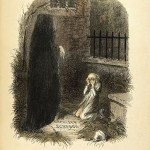With the completion of the first full calendar year in Eckstein Hall, the establishment of the Law School as a premier center for public policy debates in Wisconsin, and the announcement of the Marquette Law School Poll, 2011 was a banner year for the Marquette Law School. The same, unfortunately, cannot be said for legal education generally.
Scandals regarding the accurate reporting of employment statistics and student LSAT scores have rocked a number of law schools, and a handful of disgruntled former law students have gone so far as to file suit against their own institutions on the grounds of false advertising. And for the past several months a series of unflattering articles discussing the problems confronting American legal education have appeared in the New York Times, Wall Street Journal, Washington Post, and other prominent periodicals.
An article in the December 26, 2011, National Law Journal entitled “The Year the Chickens Came Home to Roost” sums up what was by any account a bad year for legal education.
Its list of top ten stories of the year for legal education includes:
1. the misreporting of data to the U.S. News and World Report by Villanova and the University of Illinois
2. student lawsuits against the Thomas Jefferson Law School , New York Law School, and Thomas Cooley
3. pending U.S. Senate hearings on the adequacy of the ABA’s oversight of legal education during the past decade
4. a ten-percent decline in the number of LSAT takers and in applications to law school
5. new ABA-dictated rules that require more rigorous and more detailed employment data reporting on the part of law schools
6. the elimination of the four-tier approach to law school rankings by US News
7. deans resigning under pressure at the University of Baltimore, the University of Texas, and the University of Massachusetts-Dartmouth
8. the New York Times’ series of unflattering articles on legal education
9. the ABA proposal to eliminate from law school accreditation standards the traditional requirements that law schools recognize tenure for their faculties and make use of the LSAT in the admissions process
10. the introduction of “therapy dogs” for the purpose of reducing student stress at Yale, Arizona, Richmond, and other law schools.
Apparently the antitrust lawsuit filed on December 22 by the law school at Lincoln Memorial University after it was denied ABA provisional accreditation came too late to make the list.

